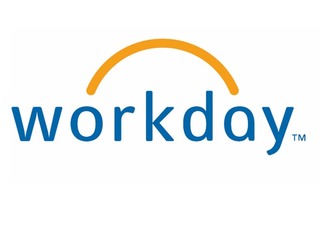
NetSuite and Workday integrated into new product
Informatica creates new template to leverage the capabilities of both services

Data integration software company Informatica has taken two major cloud-based business software platforms and combined them into prepackaged product, it was announced Thursday.
Integrated business management software company NetSuite and HR software company Workday are being combined, using Informatica’s Cloud Integration Templates, to create the Informatica Cloud NetSuite-Workday Integration Template.
By combining the two services, Informatica wants to make it easier for businesses to use WorkDay to keep employee records, while using NetSuite to keep track of system transactions for all enterprise resource planning (ERP) operations.
As a result of this synchronization, customers can now:
- Provision new hires into NetSuite and deactivate departing employees, securely and in real time.
- Accurately analyze the financial impact of stock grants, payroll transactions and benefits using NetSuite’s advanced ERP functionality.
- Accelerate financial close processes by rapidly rolling up employee costs across subsidiaries.
- More effectively enforce cost controls across the organization.
“Silos of information can dilute much of the promise of cloud computing,” Juan Carlos Soto, senior vice president and general manager, Cloud Integration, Informatica, said in a statement. “Informatica provides a platform for quickly creating connectors and easy-to-use integration processes across applications, both cloud and on-premise, to eliminate information silos. The NetSuite-Workday prepackaged integration is an example of how Informatica Cloud’s technology empowers enterprises of all sizes to unlock the potential of their data in the cloud.”
The new templaye synchronizes data between Workday Human Capital Management (HCM) and NetSuite ERP and is available on the Informatica Marketplace and NetSuite’s SuiteApp.com.
Pleasanton, California-based Workday, which was founded in 2005 by David Duffield and Aneel Bhusri, offers solutions to running a company, helping with payroll; financial management, including billing, accounting, cash management, time tracking; and human capital management, which encompasses absences, benefits and organization. The solutions are a cloud-based alternative to in-house legacy enterprise applications.
In October 2011, the company raised $85 million, bringing its total financing to $250 million, which had some experts estimating the company’s valuation to be $2 billion. Financial backers include Amazon CEO Jeff Bezos’s Bezos Expeditions, Janus Capital Group, Morgan Stanley Investment Management, and T. Rowe Price, among others.
Workday went public in October 2012, and is currently trading at $55.14 a share.
NetSuite provides on-demand, integrated business management software for growing and midsize businesses. It enables them to manage key business operations in a single hosted system, including: customer relationship management (CRM); order fulfillment; inventory; accounting and finance, product assembly; e-commerce; Web site management; and employee productivity.
The company, which went public in 2007, is currently trading at $67.54 a share.
Informatica Corporation is an independent provider of data integration software. It enables organizations around to maximize return on data to drive their top business imperatives. Worldwide, over 5,000 enterprises use Informatica to leverage their information assets residing on-premise, in the Cloud and across social networks.
Workday and NetSuite were unavailable for further comment regarding the integration.
Related Companies, Investors, and Entrepreneurs
Netsuite
Startup/Business
Joined Vator on
NetSuite Inc. is the leading provider of on-demand, integrated business management software for growing and midsize businesses. With thousands of customers globally using NetSuite's online products and professional services, companies are enabled to manage all key business operations — in a single hosted system, including: customer relationship management (CRM); order fulfillment; inventory; accounting and finance, product assembly; ecommerce; Web site management; and employee productivity.
Related News


Workday pops 72% on its IPO trading day

